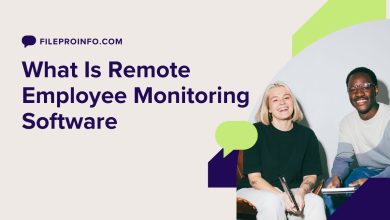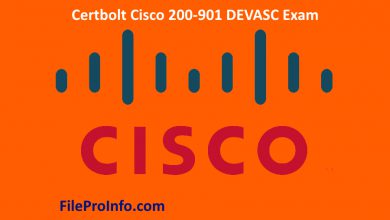
Never before in the history of the internet have users craved reliability in the information they consume – whether it comes from journalists, authors, politicians, or businesses.
People are anxiously seeking reassurance – even proof – that the information they are presented is true and from a reputable source in an era when misinformation is rampant and once-venerable news institutions are being rigorously questioned.
And search engines like Google are aware of it.
It is no longer sufficient to reverse-engineer Google’s algorithms to achieve first-page rankings in search results. Google is now looking for a complex set of indicators that indicate the expertise, authority, and trustworthiness (E-A-T) of your website and the people who created it.
Although E-A-T is not a ranking factor, it is heavily featured in Google’s Search Quality Evaluator Guidelines. Because these are the people who evaluate page quality to inform algorithm updates, their guidelines provide us with insight into what Google considers to be a high-quality user experience.
This is especially true for Your Money or Your Life (YMYL) content, so-called because of the serious consequences it can have on a searcher’s livelihood. YMYL topics include medical advice, stock recommendations, and mortgages, to name a few.
How can you demonstrate E-A-T in your content to satisfy readers while also meeting your on-page SEO objectives?
The Nearest Your Website Will Come To Demonstrating Virtue And Integrity
The most difficult aspect of mastering E-A-T is its apparent simplicity.
E-A-T is concerned with the content’s worth, dependability, and integrity. By integrity, we mean providing users with the trustworthy information they require in a usable format. You can’t make your website’s E-A-T look like it has it, and you can’t trick Google into thinking it does when it doesn’t.
Perhaps it is this elusiveness – the unshakeable “realness” of content that is trustworthy and produced by experts who are authorities in their fields – that has prompted Google to prioritize E-A-T in this manner.
Rather, Google engineers identified trustworthiness indicators, and the presence or absence of these indicators influences a website’s ranking.
You can stay under the radar until you’re ready to compete.
In a business world obsessed with (and spoiled by) numbers, formulas, automation, and programmable solutions to any conceivable problem, the concept of E-A-T can drive any marketer insane.
If you find yourself in this situation, take a moment to clear your mind and then walk yourself through this simple truth:
Your customer must have faith in you, your expertise, and your reputation.
This applies to you regardless of your line of work. It also applies to a customer searching for you on the internet just as much as it does to a customer standing in front of you at your place of business.
Your next question should be, “How do I build trust on my website?”
We’re talking about mastering E-A-T, and that’s what we’ll be talking about here.
Read The Ultimate Checklist for Conducting a Content Audit.
What Exactly Is Google’s E-A-T?
Google wants to reward sites that create high-quality content because they provide the best answers to relevant queries. The search engine also wishes to ensure that sites that publish low-quality content receive less exposure.
Let’s take a closer look at each of the elements that comprise the E-A-T principle.
Expertise
In some fields, demonstrating your expertise is especially important (e.g., legal, financial, medical).
Google wants the content on these sites to be written by subject matter experts (SMEs) – people who have the knowledge and understanding of the field to speak in-depth about a specific topic.
This knowledge can be broad or narrowly focused.
Google also accepts what it refers to as “everyday expertise.”
In the Search Quality Evaluator Guidelines, the company explains this concept as follows:
“Some subjects necessitate less formal knowledge. Many people write extremely detailed, helpful product or restaurant reviews. Many people share their life experiences and tips on forums, blogs, and other social media platforms.
These ordinary people may be regarded as experts in areas where they have firsthand experience.
If it appears that the person creating the content has the type and amount of life experience to qualify him or her as an ‘expert’ on the topic, we will value this ‘everyday expertise’ and will not penalize the person/webpage/website for lacking ‘formal’ education or training in the field.”
Try free Website Reviewer, Online Ping Website Tool, Page Size Checker.
Implementing the Strategy
Google wants to provide links to websites that have published useful, comprehensive, relevant, and accurate content – which makes perfect sense.
People are visiting your website to find answers to critical questions. As a result, providing inaccurate, unhelpful, or outdated content is a recipe for SEO disaster.
Google does not want to send its users to websites that intentionally mislead them.
As a result, ensure that the people who create your content have subject matter expertise and that they have sources on hand to conduct the necessary research and fact-checking.
Authoritativeness
When Google mentions authority, it is referring to reputation. The greater your authority, the stronger your reputation as a knowledge source within your circle of industry experts.
When Google places raters on your website, they will scour the internet for indications of your authority in your specific subject area. They will look for information in news articles, reviews, references, and even Wikipedia articles.
The raters want to assess your (or your website’s) level of authority on the subject matter covered by your website. The higher that level of authority, the higher your site’s ranking.
Make it appealing and linkable
Linkability is another factor that indicates authority on your website. Links – particularly the quality of those links – remain a key ranking factor.
This is not a hidden fact.
For years, links have been compared to votes, with the more votes you receive, the more authoritative (or popular) you are.
Isn’t it difficult to get people to vote for you if they don’t know your name? The same is true for “votes” on your website’s content.
Whereas expertise is defined as specific knowledge or skills, authoritativeness occurs when others (both inside and outside of your industry) recognize that expertise.
This acknowledgment can take the form of links, mentions, shares, reviews, or any other type of citation.
It sounds like authoritativeness is similar to your online reputation, doesn’t it?
That’s because it is, in a way. The best way to establish that authority online is to create the useful content discussed in the previous section.
Trustworthiness
You want people to believe in your brand or business and to be willing to endorse or purchase from you.
To earn the trust of internet users and search engines, you must put in a lot of effort, just like in the “real world.”
One way to boost your credibility is to highlight the credentials of your content creators and the website. Consider awards, testimonials, endorsements, and other indicators of trust.
People must believe they can rely on all of the information they find on your website.
Similarly, Google wants to rank websites and content that it can rely on. In 2018, Google released an update known as the Medic Update, which prioritized reputable, well-researched content. This update signaled to marketers how much importance Google placed on E-A-T.
Trust is also related to Google’s YMYL concept.
What Exactly Is YMYL?
Google categorizes websites that sell products or provide services or information that can affect users’ happiness, health, financial stability, or safety as YMYL – which stands for “Your Money or Your Life.”
In a March 2021 Google Search Central SEO hangout, Google’s John Mueller shared some insight into the importance of E-A-T for YMYL websites.
“I don’t think there is one simple approach to that. And I think especially when it comes to medical content, I think that’s super important that our algorithms are very picky there with regards to what we show. So I would look at the quality rater guidelines and really think about how your site might be perceived by the quality raters.
The quality raters don’t make the algorithms, but they do give us a lot of insight into what we might do in our algorithms. So I would strongly recommend going through that. And I think it’s especially, when it comes to these kind of sites, it’s less about the tactics and really more about making sure that it really is a legitimate business and that it’s backed up by appropriate trustworthy sources.
So not just high quality content, and doing all of this syndication, all of these things. But really making sure that it’s written by doctor, it’s created by medical professionals who are legitimate in their field.”
When it comes to YMYL, the bottom line is simple: make sure that any content on your website will benefit, not harm, the people who consume it.
Make your users feel safe.
Take good care of your customers, and Google will take good care of you.
What Is the Importance of E-A-T in SEO?
For as long as I can remember, Google has been telling us to create great content. And great content is what ranks first in Google’s search results.
So, Google considers E-A-T in some form when returning search results, and you should as well.
Be aware that E-A-T applies to all types of websites, including gossip, fashion, humor, forums, and Q&As.
This means that E-A-T applies to your site.
As a result, your top priority should be to create content that your target audience wants or needs – content that provides true value. Adding these pages to your website should help it rank higher in Google’s search results.
And, yes, saying it is much easier than doing it. To begin, you must understand what Google means by “high-quality content.”
What Exactly Is High-Quality Content?
Any content you create must serve a purpose. Clients, customers, users, or readers must benefit from your content.
Common Characteristics of High-Quality Pages
High-quality pages, according to the Search Quality Evaluator Guidelines, have:
- Expertise, authority, and trustworthiness at a high level (E-A-T).
- A satisfying amount of high-quality main content with a descriptive or helpful title.
- Website information that is satisfying, as well as information about who is responsible for the website (for shopping pages or those that enable financial transactions, this includes satisfying customer service information).
- A good reputation as a website that is in charge of the main content on the page.
- A positive reputation for the creator of the main content, even if it differs from the website’s.
According to Google’s guidelines, the highest quality pages (including YMYL pages) will have an extremely high level of E-A-T.
What Exactly Is Low-Quality Content?
As you might expect, low-quality content is the polar opposite of high-quality content.
As Google puts it:
“Websites or pages without some sort of beneficial purpose, including pages that are created with no attempt to help users, or pages that potentially spread hate, cause harm, or misinform or deceive users, should receive the Lowest rating.”
If high-quality content helps your site rank higher, it stands to reason that low-quality pages may harm your Google rankings.
If your content is inaccurate, serves no purpose, or contains elements that degrade the user experience, Google is unlikely to feature your website prominently in search engine results pages (SERPs).
Characteristics of a Low-Quality Page
According to Google’s guidelines, the following are the characteristics of a low-quality page:
- The page’s level of Expertise, Authoritarianism, and Trustworthiness is insufficient (E-A-T).
- The main content (MC) is of poor quality.
- For the purpose of the page, there is an insufficient amount of MC.
- The MC’s title is exaggerated or shocking.
- Ads or secondary content (SC) detracts from the main character (MC).
- There is an insufficient amount of website information or information about the MC’s creator for the purposes of the page (no good reason for anonymity).
- According to extensive reputation research, the website or the MC creator has a mildly negative reputation.
In a nutshell, low E-A-T indicates poor content. Bad content equals bad SEO, and bad SEO equals lost valuable traffic and conversions due to low rankings.
How to Increase the E-A-T of Your Website
Hopefully, you now understand what the E-A-T acronym stands for and why it is so important.
So, how can you ensure that your website content is of high quality while also increasing your on-page SEO efforts?
Here are some best practices to keep in mind when creating new content.
1. Include a byline and a bio for each of your authors
Consider the last time you visited a blog and saw that some content was published by “Admin” or some random guy with no last name. Did you have faith in that website? Was the content fantastic?
No, and also no.
According to Google’s guidelines, articles should be written with “journalistic professionalism.”
As part of that professionalism, every piece of content you publish should include the author’s name – their byline.
Make a list of all the people who contributed to your content.
Ideally, you should include biographical information for everyone who creates content for you, whether it’s blog posts, articles, or question and answer pages.
Is your content’s author a recognized expert in your field? Then you should emphasize that.
You can do this on a separate bio page that also includes the author’s previous content, or you can do it at the bottom of the article.
Clicking on [Read full bio] takes you to my full bio page, which contains information about who I am and what I do:
Here are some important components of a good bio page:
- Full name.
- Headshot.
- Title/position.
- A detailed bio.
- Contact information (e.g., email form, social media).
All of this makes it simple for users (and Google) to determine who created the content and evaluate their individual E-A-T.
2. Make it simple to find your contact information
Is it easy for visitors to find your contact information on your landing pages?
Can they quickly determine how to get customer support?
Remember that E-A-T evaluates your entire website. The simplest solution is to include links to your About Us and Contact Us pages in your main or footer navigation.
Make those pages now if you don’t already have them on your website!
3. Remove Or Improve Your Low-Quality Content
As Executive Editor Danny Goodwin of Search Engine Journal puts it, “you must decide whether to improve or remove your old or outdated content.” According to Goodwin, SEJ jumped on this process and doubled site traffic in just over a year.
If you have content that is no longer useful – or is simply so bad that it isn’t worth the time investment to update or improve it – pruning that content is a quick way to improve your E-A-T.
Changing the Look of Your Content
Removing content should always be a last resort, but if it is required, do so without hesitation. Ideally, you want to identify any content that appears to have low E-A-T and figure out how to reverse it.
Here are some ideas for increasing E-A-T:
- Allow someone with more authority to write the content.
- Include expert quotes, data, sources, or citations.
- Simple edits can be made to improve readability, grammar, spelling, and structure.
- Increase the amount of information in order to make it more comprehensive.
- Create a new and improved title.
- Include visual elements such as photos, charts, and screenshots (and make sure to optimize those images).
- Include a video for those who prefer that format over text only (this has the added benefit of potentially keeping visitors on your site longer).
The process of elevating content takes longer, but it will significantly improve your website’s E-A-T and performance. This procedure is especially important for any YMYL page.
4. Establish a Positive Brand Image
A positive brand reputation is critical to the growth of your company and your E-A-T.
Thought leadership is one way to accomplish this. If you can share insights that your target audience truly values, you can move them closer to conversion.
High-quality thought leadership content is beneficial to a company’s ability to win, retain, and grow. This will also help you establish authority in your niche and gain Google’s trust.
When done correctly, thought leadership can be extremely powerful, so make sure you’re not underwhelming your audience!
Learn more about how thought leadership generates real ROI by clicking here.
Summary
Is E-A-T a ranking criterion?
In my opinion, this is the wrong question to ask. Let’s put ranking factors aside for a moment and focus on your audience.
If you follow all of Google’s E-A-T guidelines, you’ll be creating informative, useful, high-quality content that your audience wants and assisting them in completing a task (e.g., acquiring knowledge, buying a product).
In other words, you’re delivering a positive user experience.
Anything beneficial to users will help you rank higher in Google – and drive the traffic and conversions you desire.
Learn more from SEO and read What You Should Know About Keyword Prominence As A Ranking Factor In Google.




